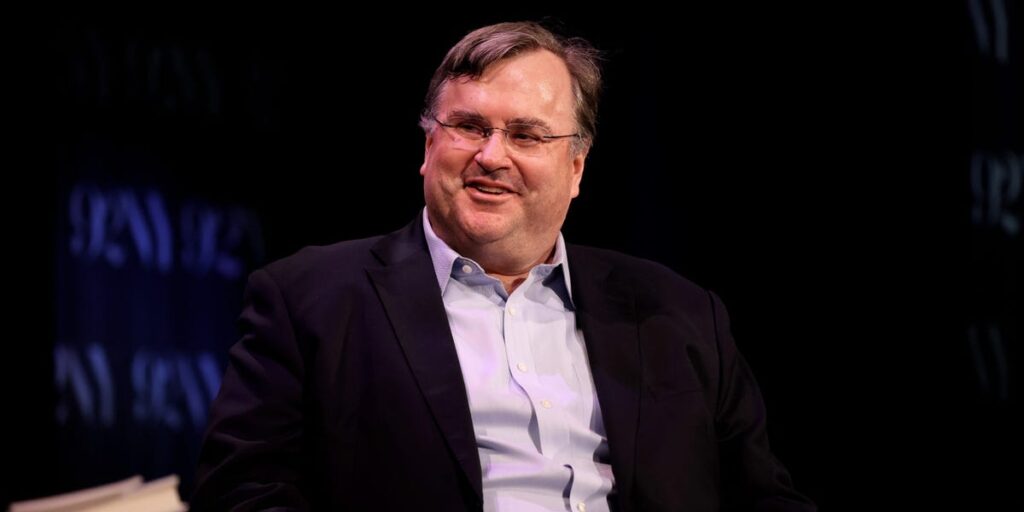Silicon Valley’s obsession with software has created a blind spot, and it might be where the next AI revolution begins, said Reid Hoffman.
The LinkedIn cofounder said on an episode of the a16z podcast published Monday that the tech industry’s “everything should be done in software” mindset has become a limitation.
That belief, which fueled decades of Silicon Valley success, now risks keeping innovators from seeing new opportunities, Hoffman said.
“What are the areas where the AI revolution will be magical?” Hoffman asked. “That’s probably where I’ve been putting the majority of my co-founding time, invention time.”
Hoffman said the next generation of iconic AI companies will likely emerge from fields that most investors consider too complex, slow, or regulated to touch — and one of those areas is biology.
“I’ve been thinking about the intersection of the worlds of atoms and the worlds of bits,” Hoffman said. “What are things that elevate human life?”
Hoffman said he isn’t betting on AI being able to design drugs independently. Instead, he said AI tools could guide scientists toward the most promising experiments.
“Simply doing prediction and getting that prediction right — and by the way, it doesn’t have to be right 100% of the time,” he said. “It has to be right like 1% of the time, because you can validate the other 99%”
“It’s not a needle in a haystack. It’s like a needle in a solar system. But you could possibly do that,” he added.
Hoffman did not respond to a request for comment from Business Insider.
AI in healthcare
Hoffman’s comments come as AI in healthcare builds momentum.
Ark Invest’s CEO Cathie Wood said at the All-In Summit 2025 in September that the real AI revolution is happening in hospitals and labs.
Combining AI with advances in gene sequencing and CRISPR technology — a technology scientists use to modify DNA selectively — could spark a medical transformation, said the investor known for bold bets on disruptive tech.
“This is the sleeper. It’s the most inefficiently priced part of the market,” Wood said.
Tech’s biggest players are already racing to stake their claims in the sector. Microsoft has been integrating AI into its cloud solutions to automate hospital operations. Earlier this year, Microsoft said its medical AI system diagnosed cases more accurately than human doctors by a wide margin in a study.
Nvidia is also pushing deeper into the sector. Its VP of healthcare, Kimberly Powell, told Business Insider in April that medical imaging was one of Nvidia’s entry points into healthcare. The company has notched several medical imaging partnerships powered by its AI platforms, most recently with GE Healthcare in March.
Read the full article here


